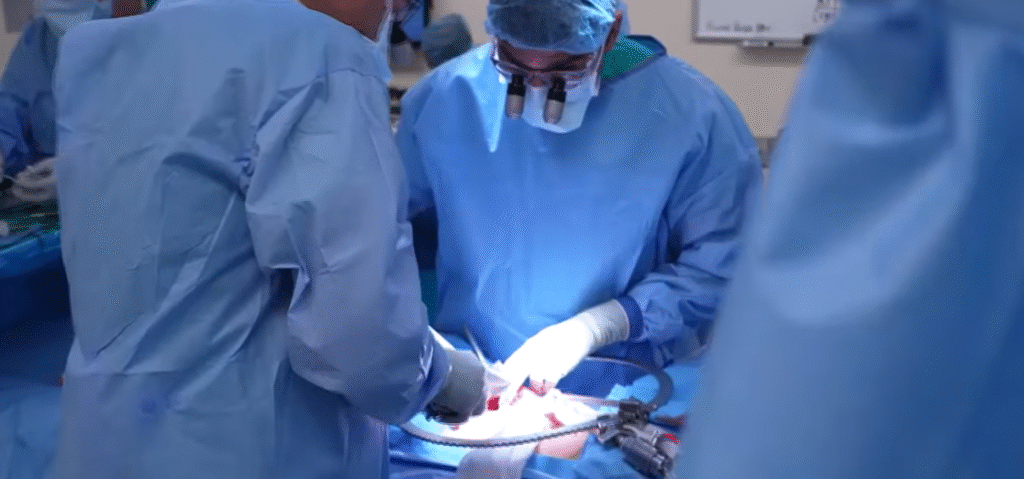As patients balance affordability, speed, and safety against extremely personal health needs, discussions regarding where to travel for a kidney transplant have heated up in recent days. Selecting a destination is similar to selecting a home away from home in that familiarity is important, but practical considerations are more important. Cost, comfort, and trust all play a part in the decision, which families frequently characterize as emotionally charged and remarkably similar to sending a child to study abroad.
In addition to its surprisingly low costs, India has emerged as a particularly advantageous option for many due to its remarkably transparent donor laws, which restrict eligibility to first-degree relatives. With internationally recognized units, hospitals in Delhi, Mumbai, and Bangalore have success rates that frequently approach 98%. I remember a UK family telling me that even with travel and a longer stay, the total cost of their surgery in India was still less than half of what it would have cost back home. India is now a destination for people juggling pressing needs with limited resources because of the substantial reduction in barriers brought about by this economic disparity.
In contrast, Turkey provides a noticeably better balance between accessibility and modernity. Istanbul’s hospitals are on par with those in Europe, but they are much less expensive and have shorter wait times. Patients who are traveling with extended family members can benefit greatly from donor laws that permit up to a fourth-degree relative. The nation has established itself as a highly effective medical tourism destination in the last ten years, with private hospitals providing all-inclusive packages that address everything from pre-operative testing to recovery following surgery. Patients frequently comment on how well the coordination feels, comparing it to a symphony in which medicine and logistics work together harmoniously.
| Country | Approximate Cost (USD) | Success Rate | Waiting Time | Donor Law Highlights | Best For |
|---|---|---|---|---|---|
| India | From $13,000 | Up to 98.7% | 6–8 weeks stay | Donor must be 1st degree relative | Affordable high-quality care |
| Turkey | From $16,000 | 94%+ | 3–4 weeks stay | Donor up to 4th degree relative | Quick access, modern hospitals |
| Mexico | Around $38,000 | 95–97% | Varies | Donor must travel with patient | Shorter wait, mid-cost option |
| South Korea | $40,000–$70,000 | 95–98% | 4–6 weeks stay | Donor up to 3rd degree relative | Advanced technology, strong aftercare |
| Jordan | $25,000–$40,000 | 91–97% | Moderate | Donor must accompany patient | Trusted care in Middle East |
| United States | $400,000+ | 97%+ | 3–5 years | Deceased and living donors allowed | Cutting-edge research |
| Spain | $70,000+ | Among highest globally | 1–2 years | Strong deceased donor system | Advanced EU healthcare |
| Germany | $80,000+ | 97%+ | 1–2 years | Living & deceased donors | Rigorous clinical quality |
| UK | Around $70,000 | 96%+ | 2–3 years | NHS-regulated donors | Strong public health system |
| Singapore | $90,000+ | 98%+ | Short | Advanced donor registry | Premium technology, reliable |
Authentic reference: National Kidney Foundation — https://www.kidney.org

For many Americans who cannot afford the exorbitant costs of treatment at home, Mexico offers a mid-range alternative. Mexico offers a good mix of modern amenities and shorter wait times, with average prices close to $38,000. Patients must bring their own donors, but the close proximity is especially helpful for families who don’t want to relocate for extended stays. For those looking for care closer to home, it is a very dependable alternative because success rates are still consistently high, frequently exceeding 95%.
An example of technological excellence can be found in South Korea. Korea has emerged as a reliable option for patients who value cutting-edge robotics, AI-assisted diagnostics, and extensive aftercare, thanks to hospitals like Samsung Medical Center spearheading innovations. The donor laws provide for some flexibility without compromising ethical protections by permitting up to third-degree relatives. From beginning to end, families say the experience was very clear and included structured guidance that was especially creative in combining lifestyle counseling and post-surgery monitoring.
Jordan is still a very successful choice in the Middle East, despite its smaller scale. Amman’s hospitals are known for their proficient nephrology teams and consistent results, with success rates ranging from 91% to 97%. Patients from nearby areas who want dependable care without having to travel great distances will especially benefit from this location.
In contrast, the United States is a leader in technology and research, but it frequently fails patients in terms of access. With waiting periods ranging from three to five years and expenses surpassing $400,000, many patients’ hopes are dashed before their names are ever listed. Even though they have some of the best deceased donor systems in place, Spain and Germany, two highly developed and respected countries, are also plagued by lengthy lines. Despite being more expensive and providing better care, Singapore is praised for its reliability and for producing incredibly effective results that are primarily within the reach of those with greater financial resources.
Patients’ perceptions of medical travel have unintentionally changed as a result of celebrities who publicly discussed their transplant experiences. Their experiences, which are frequently featured in glitzy magazines, encourage people who might otherwise be reluctant to seek treatment overseas and normalize the idea. This cultural change is especially novel since it demonstrates how health narratives can change policy as well as perception. These celebrity examples, however, highlight a social divide because what is affordable for them may still be out of reach for many, underscoring the ongoing debate around affordability and legality.
Due to the substantial reduction of barriers brought about by the growth of medical tourism, healthcare has become a cross-border market in which hospitals now compete globally. A comprehensive experience is produced by packages that include not only surgery but also lodging, transportation, and translation services. Families frequently liken it to organizing a wedding—it’s emotional and intricate, but it’s managed by experts who make sure every little detail goes as planned. For patients who are under a lot of stress, the result is remarkably effective because it is both emotionally and medically reassuring.
There is no denying the impact on society. Countries have been forced to tighten regulations against organ trafficking while simultaneously allowing for legal medical tourism as more patients travel. In response to this changing environment, Korea has implemented measured restrictions, Turkey has expanded its allowances, and India has implemented a strict first-degree rule. In addition to being protective, these frameworks are especially creative in striking a balance between access and ethics, making it abundantly evident that the system’s integrity is just as important as its effectiveness.
Selecting a kidney transplant destination is a moral and personal choice in addition to a financial one. Patients balance the convenience of being close to family against the possibility of receiving treatment more quickly, and many say the experience changes their lives in ways that extend well beyond the operating room. Not only does the transplant itself restore hope, but the journey itself—the compassion of nurses, the comfort of physicians, and the resiliency that emerges in patients—is what unites the stories in a startling way.
